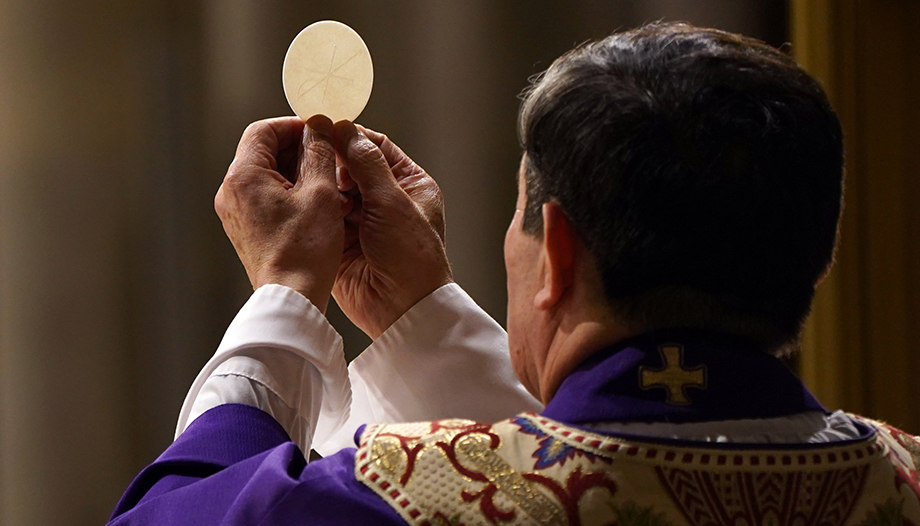The bulletin of the Holy See Press Office of February 21, 2023, reports that in the audience that the Holy Father Francis granted to the Cardinal Prefect of the Dicastery for Divine Worship and the Discipline of the Sacraments last Monday, February 20, he confirmed two details of the motu proprio Traditionis custodes whose application could be encountering some resistance or confusion.
a) In the first place, the rescript refers to what was stated in article 3 §2 of the motu proprio ".Traditonis custodes". There it reads:
Article 3: The bishop, in the dioceses in which there is so far the presence of one or more groups celebrating according to the missal prior to the reform of 1970 must:
§ 2. to indicate one or more places where the faithful belonging to these groups can gather for the celebration of the Eucharist (not in parish churches and without erecting new personal parishes).
The rescript published today reads:
"These are dispensations reserved in a special way to the Apostolic See (cf. CIC can. 87 §1:
- the use of a parish church or the erection of a personal parish for the celebration of the Eucharist using the Missale Romanum of 1962 (cfr. Traditionis custodes art. 3 §2);
Reading both texts with a certain amount of attention, knowledge of the language and good will, one comes to the conclusion that nothing has changed, or at least that we are not facing new restrictions to the traditional liturgy, nor new obligations of the bishops. A point has simply been clarified.
That is, the bishop, as already stated in the motu proprio of July 2021, cannot designate a parish church or create new personal parishes as places for the celebration of the Eucharist with the Missale Romanum of 1962.
What is the novelty of the rescript?
The key is in canon 87 of the Code of Canon Law The diocesan bishop, whenever, in his judgment, it is for the spiritual good of the faithful, can dispense the faithful from both universal and particular disciplinary laws promulgated for his territory or for his subjects by the supreme authority of the Church, but not from procedural or penal laws, nor from those whose dispensation is reserved especially to the Apostolic See or to another authority.
Thus, according to the motu proprio "Traditionis custodes", the bishop could not designate a parish church or create a new personal parish as a place of celebration with the 1962 Missal, but some bishops had understood that they could dispense from this law for the spiritual good of the faithful. By reserving this dispensation in a special way to the Apostolic See, this dispensation by the bishop is no longer possible.
b) Secondly, it refers to article 4 of the Motu proprio which states:
Priests ordained after the publication of the present motu proprio, who wish to celebrate with the Missale Romanum of 1962, must present a formal request to the diocesan bishop, who will consult the Apostolic See before granting authorization.
The rescript confirms the above when it states:
"These are dispensations reserved in a special way to the Apostolic See (cf. CIC can. 87 §1:
- the granting of the license to priests ordained after the publication of the motu proprio "Traditionis custodes" to celebrate with the Missale Romanum of 1962.
Also in this case we can say that there is no variation and the same applies as we said before. The bishop could not grant the authorization without consulting the Apostolic See. Now it is made clearer that only the Holy See can grant such a license and this provision, now reserved in a special way to the Holy See, is not dispensable by the bishop.
In conclusion, we can affirm that the rescript does not add anything that was not already in the letter and above all in the mens of the motu proprio "Traditionis custodes". Some bishops may have understood that, for the good of the faithful, certain provisions of the motu proprio could be dispensed. By reserving these provisions in a special way to the Apostolic See, it is made clear to the bishops what they can and cannot do.
Today's rescript seems to confirm, at least for the time being, two points: firstly, the mens of the provisions concerning the liturgy prior to the conciliar reform, is that it should be limited as much as possible, possibly with the aim of its disappearance. Secondly, the Holy Father, by not prohibiting the traditional liturgy, maintains full respect for the Catholic faith, according to which an orthodox liturgy, such as that celebrated in the Missale Romanum of 1962 and in the other liturgical books prior to the liturgical reform, cannot be prohibited even by the supreme authority of the Church.
In fact, as the Catechism of the Catholic Church recalls, citing the Second Vatican Council, the liturgy is a constitutive element of the holy and living Tradition (cf. Dei Verbum8), nor can the supreme authority of the Church change the liturgy at will, but only in virtue of the service of faith and in religious respect for the mystery of the liturgy (cf. Catechism of the Catholic Church, n. 1124-1125).





 Juan José Silvestre: "Traditionis Custodes returns to the situation of 1970".
Juan José Silvestre: "Traditionis Custodes returns to the situation of 1970".





